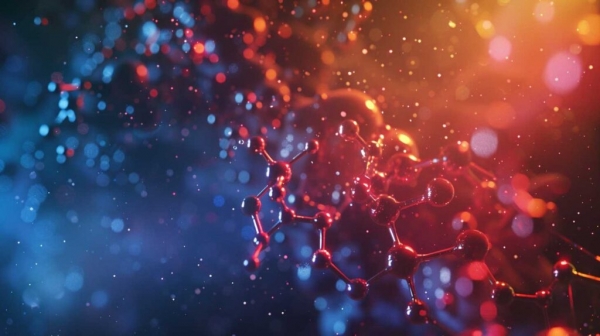Researchers at the University of Michigan have developed a catalyst material known as cobalt phthalocyanine that converts carbon dioxide—a significant driver of climate change—into renewable fuels such as methanol.
Researchers at the University of Michigan have developed a catalyst material known as cobalt phthalocyanine that converts carbon dioxide—a significant driver of climate change—into renewable fuels such as methanol.
Published in the journal ACS Catalysis, U-M researchers studied using cobalt phthalocyanine as a catalyst to convert carbon dioxide into methanol through multiple reaction steps. The first step converts carbon dioxide (C02) into carbon monoxide (CO) and the second step converts the CO into methanol.
This approach presents a sustainable method for reducing greenhouse gas emissions while offering an avenue to produce clean energy.
Read more at: University of Michigan
Concept illustration of chemically converting CO2 into fuels like methanol. (Photo Credit: Nicole Smith, made with Midjourney)




